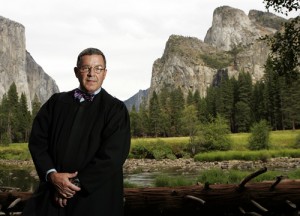Friday Roundup
More on sex offenders. The constitutionality of Ohio's Adam Walsh Act, the latest effort to impose ever more Draconian sanctions on sex offenders, is presently pending before the Supreme Court in State v. Bodyke. The odds for setting aside the law are grim, every appellate district in Ohio having rejected various constitutional challenges to it. As I've written on numerous occasions, the efficacy of such laws are doubtful, but anymore, an equally compelling argument can be made that they're just plain stupid. Under Ohio's statute, for example, sexual imposition, a third degree misdemeanor, is a Tier I offense, meaning the offender has a 15-year registration and reporting requirement. Groping a woman's buttocks in a bar can you get you convicted of that offense.
Of course, that's no more ridiculous than some of the other laws out there defining "sex offenders," as this recent article from the Economist points out:
A report by Sarah Tofte of Human Rights Watch, a pressure group, found that at least five states required men to register if they were caught visiting prostitutes. At least 13 required it for urinating in public (in two of which, only if a child was present). No fewer than 29 states required registration for teenagers who had consensual sex with another teenager. And 32 states registered flashers and streakers.
Smith/Allen followup. After my post yesterday on Lorain County Judge James Burge's decision to grant a judgment of acquittal under CrimR 29(C) to two defendants convicted of child rape 15 years earlier, I got a call from John Martin, noted appellate practitioner and head of the county's Public Defender appellate division, who suggested I take a gander at State v. Roddy. In Roddy, the 8th District had denied the State leave to appeal from a decision granting a 29(C) motion, and the State took it up to the Suprem es. They agreed to hear it, but Martin (shown here getting a pep talk from an unidentified PD before oral argument in the case) gave such a stunning presentation that the court dismissed the case as having been improvidently granted.
es. They agreed to hear it, but Martin (shown here getting a pep talk from an unidentified PD before oral argument in the case) gave such a stunning presentation that the court dismissed the case as having been improvidently granted.
Using Roddy to uphold Burge's ruling is a hard sell, though. The State's argument in Roddy was that the court had used an improper standard of evaluating the evidence in ruling on a 29(C), and conceded that regardless of the appellate court's ruling, double jeopardy would bar Roddy's retrial. This allowed the defense to argue that the State was really seeking an advisory opinion, and the state constitution doesn't permit that.
In Burge's case, though, the state isn't arguing that he made the wrong ruling, it's arguing that he never had the power to make the ruling in the first place, since the defense hadn't even filed a 29(C) motion. In that respect, it's very difficult to distinguish away Carlisle, the US Supreme Court case I discussed yesterday, which reversed the grant of a 29(C) motion on the grounds that, since the defendant filed the motion a day out of rule, the court had no power to grant it.
It's only rock'n'roll. The Recording Industry Association of America has received enormous flack for its lawsuits against individuals for sharing illegally downloaded music. The public relations problems with that policy reached an apex a couple years back when they sued a man staying in a homeless shelter, and the RIAA finally announced this past spring that they weren't going to be suing individuals anymore.
Whatever hits they've taken in the court of public opinion, though, hasn't translated to defeat in the courtroom. Jammie Thomas, a single mother of four from Minnesota, was accused of downloading 24 songs from Kazaa and sharing them with others. Her trial in 2007 ended with a verdict against her of $222,000, which works out to be about $9,250 per song. The judge threw out the verdict, though, deciding he'd given the wrong jury instruction. So Thomas took it to trial again, only to have a second jury hit her up for $1.92 million. (Why the case was tried once, let alone twice, is a bit of a mystery; Thomas' credibility -- she claimed to know nothing about the downloading -- was pretty thoroughly shredded, as this excellent account of the first trial shows.)
And just two weeks ago Joel Tenenbaum, a Boston University graduate student who admitted downloading and sharing 30 songs, was on the receiving end of a $675,000 judgment. The most interesting aspect of the case was that Tenenbaum was defended by Harvard Law Professor Charles Nesson, and as this New York Times article and this post from the Volokh Conspiracy make clear, the classroom is a far different place from the courtroom.
Tenenbaum could have settled the suit at the beginning for $4,000.
Best judge's job in the world? Sure, you're not going to be doing too much -- you're limited to handling "misdemeanor and petty offense criminal actions," and, unlike a Federal District Judge, magistrates don't serve for life. But this particular position certainly has some nice fringe benefits.

Comments